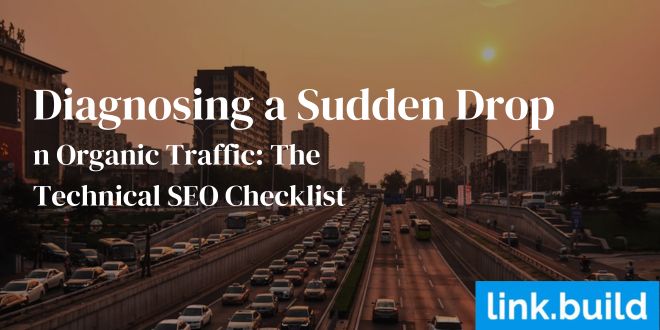Link Building Services Agency.
Only the highest quality backlinks for the web’s most discerning clients

.avif)
Backlink Services for Discerning Brands
Even in a world dominated by AI, quality link building remains an integral part of any SEO strategy. When done correctly, it can dramatically increase your website’s search engine ranking and organic traffic. However, not all link building services offer the same quality or results – so it’s important to do your research before choosing one!
That’s where Link.Build comes in.
We are the premier link building agency that other digital marketing agencies trust to provide them with exceptional link building services. Our team of experts excel at streamlining and optimizing every aspect of your project, delivering results beyond expectation.
For nearly two decades, we have been crafting top-of-the-line links for some of the most esteemed digital brands on the web.
Will your website be next?
Our typical clients are highly-educated and understand the workings of SEO and the importance of link building.
They align with the mantra that for quality and lasting SEO results, time and effort are required - especially in competitive industries.
We measure the success of our link building service not by days or weeks, but rather over a span of months and years to truly gauge its efficacy.
From standout branding to inventive marketing and powerful advertising, we deliver everything you need to elevate your brand to the next level.
Our team brings bold branding, forward-thinking marketing, and compelling content marketing together to help your business rise above the noise.
We only build links from real websites with real organic traffic.
No PBNs. No Spam. No Bull.
Our team brings bold branding, forward-thinking marketing, and compelling advertising together to help your business rise above the noise.
Holistic Approach To Modern Link Building
Backlink Audits
We perform backlink audits to uncover risks and opportunities
Link Outreach
Manual link building outreach for industry-specific, targeted placements
Broken Link Building
Find obscure but highly-relevant link placements
Content Creation
The highest-quality content creation for the best links
On-Page SEO
Holistic organic rankings require both on and off-page SEO
Linkgraph Monitoring
Stay atune to risky backlinks that can harm both your reputation and rankings
“SEO has evolved. It’s no longer just about links— it’s about trust, authority, and brand equity.„
Link.Build at a Glance
52
Fortune 1000 clients served
95%
Average client retention rate
$1.2B
Client revenue generated
5+
Teams working globally
Testimonials
“We have been extremely happy with the level of results that we've received from working with the AudienceBloom Team. We had high expectations from the beginning and I'm happy to say that AudienceBloom delivered which makes my team and I look very good.„


Customer reviews

Chosen by global brands

“We have been working with Link.build for the past couple years and we are thrilled with the output and turnaround. We gained TRUE competitive advantage in the industry. Communication has been excellent. World class at what they do!„

“Link.build is a phenomenal company that cares about its clients. I have worked with them on multiple projects, and to say I am satisfied with their work would be an understatement. Link.build is a marketing firm that truly understands SEO & PPC and the other facets of marketing. They have helped me optimize my website, receive a higher score on Google, and taught me different ways to target my demographic. I highly recommend them for small businesses and corporations.„

“I have been using Link.build with a number of my clients, and it's been pretty successful. Essentially they're not buying links--rather, they're creating general-interest business or tech articles where they find a reason to link to a page on your site as a reference. Then, they pitch that article to some of the publisher sites (news sites, blogs, industry journals, etc.) and get it published on one of them. I've been pleased with the quality of their articles, and with the sites they've gotten them published on.„

“Link.build has transformed our online presence. Their expertise and dedication have driven tangible results, propelling us forward. We are thrilled with the progress, and look forward to continued success.„

“I have worked with several marketing companies in the past and I can unequivocally state that Link.build is by far the best. While many other firms do not do (or are not capable of doing) what they promise, Link.build does. They also stick with you - other agencies put you on a "set you and forget you" path, but not these guys. They provide frequent updates and feedback to make sure they are doing the best they can for you. I have used them for paid advertising and link building and have been very satisfied with both. I highly recommend them.„

“After having a hard time finding the right person to manage our PPC in house, we decided to outsource and white label SEO.co/Marketer.co. After having a proven history as SEO experts and a long-term partner for SEO efforts, we felt comfortable working with them. We started with a few audits, but it became clear that the audits, implementation, and management shift to SEO.co would be beneficial. And it has proven such! Not just for our clients, but we’ve also moved our own PPC account over for management and seen qualified leads come after many previous attempts. Very happy with how things are going and the continuation and growth of our relationship.„

“We have been working with Link.Build for the past couple years and we are thrilled with the output and turn around. We gained TRUE competitive advantage in the industry. Communication has been excellent. World class at what they do!„

“Link.Build is a phenomenal company that cares about its clients. I have worked with them on multiple projects, and to say I am satisfied with their work would be an understatement. Link.Build is a marketing firm that truly understands SEO & PPC and the other facets of marketing. They have helped me optimize my website, receive a higher score on Google, and taught me different ways to target my demographic. I highly recommend them for small businesses and corporations.„

“I have been using Link.Build with a number of my clients, and it's been pretty successful. Essentially they're not buying links--rather, they're creating general-interest business or tech articles where they find a reason to link to a page on your site as a reference. Then, they pitch that article to some of the publisher sites (news sites, blogs, industry journals, etc.) and get it published on one of them. I've been pleased with the quality of their articles, and with the sites they've gotten them published on.„

“Link.Build has transformed our online presence. Their expertise and dedication have driven tangible results, propelling us forward. We are thrilled with the progress, and look forward to continued success.„

“I have worked with several marketing companies in the past and I can unequivocally state that Link.Build is by far the best. While many other firms do not do (or are not capable of doing) what they promise, Link.Build does. They also stick with you - other agencies put you on a "set you and forget you" path, but not these guys. They provide frequent updates and feedback to make sure they are doing the best they can for you. I have used them for paid advertising and link building and have been very satisfied with both. I highly recommend them.„

“After having a hard time finding the right person to manage our PPC in house, we decided to outsource and white label SEO.co/Marketer.co. After having a proven history as SEO experts and a long-term partner for SEO efforts, we felt comfortable working with them. We started with a few audits, but it became clear that the audits, implementation, and management shift to SEO.co would be beneficial. And it has proven such! Not just for our clients, but we’ve also moved our own PPC account over for management and seen qualified leads come after many previous attempts. Very happy with how things are going and the continuation and growth of our relationship.„

“We have been working with Link.build for the past couple years and we are thrilled with the output and turnaround. We gained TRUE competitive advantage in the industry. Communication has been excellent. World class at what they do!„

“Link.build is a phenomenal company that cares about its clients. I have worked with them on multiple projects, and to say I am satisfied with their work would be an understatement. Link.build is a marketing firm that truly understands SEO & PPC and the other facets of marketing. They have helped me optimize my website, receive a higher score on Google, and taught me different ways to target my demographic. I highly recommend them for small businesses and corporations.„

“I have been using Link.build with a number of my clients, and it's been pretty successful. Essentially they're not buying links--rather, they're creating general-interest business or tech articles where they find a reason to link to a page on your site as a reference. Then, they pitch that article to some of the publisher sites (news sites, blogs, industry journals, etc.) and get it published on one of them. I've been pleased with the quality of their articles, and with the sites they've gotten them published on.„

“Link.Build has transformed our online presence. Their expertise and dedication have driven tangible results, propelling us forward. We are thrilled with the progress, and look forward to continued success.„

“I have worked with several marketing companies in the past and I can unequivocally state that Link.build is by far the best. While many other firms do not do (or are not capable of doing) what they promise, Link.Build does. They also stick with you - other agencies put you on a "set you and forget you" path, but not these guys. They provide frequent updates and feedback to make sure they are doing the best they can for you. I have used them for paid advertising and link building and have been very satisfied with both. I highly recommend them.„

“After having a hard time finding the right person to manage our PPC in house, we decided to outsource and white label SEO.co/Marketer.co. After having a proven history as SEO experts and a long-term partner for SEO efforts, we felt comfortable working with them. We started with a few audits, but it became clear that the audits, implementation, and management shift to SEO.co would be beneficial. And it has proven such! Not just for our clients, but we’ve also moved our own PPC account over for management and seen qualified leads come after many previous attempts. Very happy with how things are going and the continuation and growth of our relationship.„

“We have been working with Link.Build for the past couple years and we are thrilled with the output and turnaround. We gained TRUE competitive advantage in the industry. Communication has been excellent. World class at what they do!„

“Link.Build is a phenomenal company that cares about its clients. I have worked with them on multiple projects, and to say I am satisfied with their work would be an understatement. Link.Build is a marketing firm that truly understands SEO & PPC and the other facets of marketing. They have helped me optimize my website, receive a higher score on Google, and taught me different ways to target my demographic. I highly recommend them for small businesses and corporations.„

“I have been using Link.Build with a number of my clients, and it's been pretty successful. Essentially they're not buying links--rather, they're creating general-interest business or tech articles where they find a reason to link to a page on your site as a reference. Then, they pitch that article to some of the publisher sites (news sites, blogs, industry journals, etc.) and get it published on one of them. I've been pleased with the quality of their articles, and with the sites they've gotten them published on.„

“Link.Build has transformed our online presence. Their expertise and dedication have driven tangible results, propelling us forward. We are thrilled with the progress, and look forward to continued success.„

“I have worked with several marketing companies in the past and I can unequivocally state that Link.Build is by far the best. While many other firms do not do (or are not capable of doing) what they promise, Link.Build does. They also stick with you - other agencies put you on a "set you and forget you" path, but not these guys. They provide frequent updates and feedback to make sure they are doing the best they can for you. I have used them for paid advertising and link building and have been very satisfied with both. I highly recommend them.„

“After having a hard time finding the right person to manage our PPC in house, we decided to outsource and white label SEO.co/Marketer.co. After having a proven history as SEO experts and a long-term partner for SEO efforts, we felt comfortable working with them. We started with a few audits, but it became clear that the audits, implementation, and management shift to SEO.co would be beneficial. And it has proven such! Not just for our clients, but we’ve also moved our own PPC account over for management and seen qualified leads come after many previous attempts. Very happy with how things are going and the continuation and growth of our relationship.„

“We have been working with Link.Build for the past couple years and we are thrilled with the output and turnaround. We gained TRUE competitive advantage in the industry. Communication has been excellent. World class at what they do!„

“Link.Build is a phenomenal company that cares about its clients. I have worked with them on multiple projects, and to say I am satisfied with their work would be an understatement. Link.Build is a marketing firm that truly understands SEO & PPC and the other facets of marketing. They have helped me optimize my website, receive a higher score on Google, and taught me different ways to target my demographic. I highly recommend them for small businesses and corporations.„

“I have been using Link.Build with a number of my clients, and it's been pretty successful. Essentially they're not buying links--rather, they're creating general-interest business or tech articles where they find a reason to link to a page on your site as a reference. Then, they pitch that article to some of the publisher sites (news sites, blogs, industry journals, etc.) and get it published on one of them. I've been pleased with the quality of their articles, and with the sites they've gotten them published on.„

“Link.Build has transformed our online presence. Their expertise and dedication have driven tangible results, propelling us forward. We are thrilled with the progress, and look forward to continued success.„

“I have worked with several marketing companies in the past and I can unequivocally state that Link.Build is by far the best. While many other firms do not do (or are not capable of doing) what they promise, Link.Build does. They also stick with you - other agencies put you on a "set you and forget you" path, but not these guys. They provide frequent updates and feedback to make sure they are doing the best they can for you. I have used them for paid advertising and link building and have been very satisfied with both. I highly recommend them.„

“After having a hard time finding the right person to manage our PPC in house, we decided to outsource and white label SEO.co/Marketer.co. After having a proven history as SEO experts and a long-term partner for SEO efforts, we felt comfortable working with them. We started with a few audits, but it became clear that the audits, implementation, and management shift to SEO.co would be beneficial. And it has proven such! Not just for our clients, but we’ve also moved our own PPC account over for management and seen qualified leads come after many previous attempts. Very happy with how things are going and the continuation and growth of our relationship.„
Frequently Asked Questions
How fast can you build links?

As one of the premier link building companies, we can build hundreds of quality links per month and have scaled to monthly campaign budgets up to $75K/month.
However, most of our client’s websites are not ready for that type of scale.
In most cases, just a few quality links per month is all that is needed unless you run a quality site that already has substantial link velocity.
Why should I hire a digital agency?

Hiring a digital marketing agency is a great way to ensure that your business has an effective online presence and reaches its desired target audience. A digital marketing agency can provide several key services that are essential for success, such as helping your business create an optimized website, creating engaging content, and running campaigns to drive traffic to the website.
Don’t take our word for it. Our clients consider us one of the best digital marketing companies.
How much do your link building services cost?

Our pricing ranges depending on your link building strategy and the existing backlink profile of your website. Contact us today to get a specific quote for your needs.
No two sites, industries or link profiles are the same. A one-sized-fits-all solution is disingenuous to any client looking to grow organic website traffic.
Instead, we work on a retainer basis. Our minimum monthly engagement fee is $2,000 per month, but we can scale up to enterprise budgets as high as $50,000 per month and have done so for some of the web’s most well recognized brands.
Keep in mind, a $2,000 per month budget may not be enough to move the needle in a competitive niche.
We can and do work within our clients’ internal budget restraints, but after a basic site assessment and audit, we will provide you with a quote for services that is most likely to move the needle for your desired industry, target keywords and competitive dynamics.
Can you tell me about your link building process?

With our link building services, we adhere to a repeatable, proven system–customized at a pace and scale for individual clients– for maximizing the value from your link campaigns:
- Off-site audit: We analyze keywords, competitors and existing backlinks, including anchor text, giving us a holistic look at where you currently stand relative to your industry and what should be done to take you to the next level.
- On-site audit: We audit your on-site content, internal linking, site speed, meta descriptions and title tags.
- Improvements suggestions: We provide process and pricing plans to fix any on-site issues. True holistic SEO requires a look at both on and off-site elements. These improvements also might include on-site content reworks to improve content so that it is truly “link worthy.”
- Proposal plan + pricing: We provide a complete proposal for building links at a scale and style that would most benefit your site for long-term sustainable organic traffic.
- Campaign execution: Our team performs the content production, outreach for the links and reporting back to you via our custom portal.
- Analysis & Repeat: We iterate as we see what is working, repeating our analysis and monitoring as your organic site grows.
Our link building efforts have yielded link building and content marketing ROI in the quadruple digits. Let our high quality backlinks do the same for you.


.svg)








.webp)









